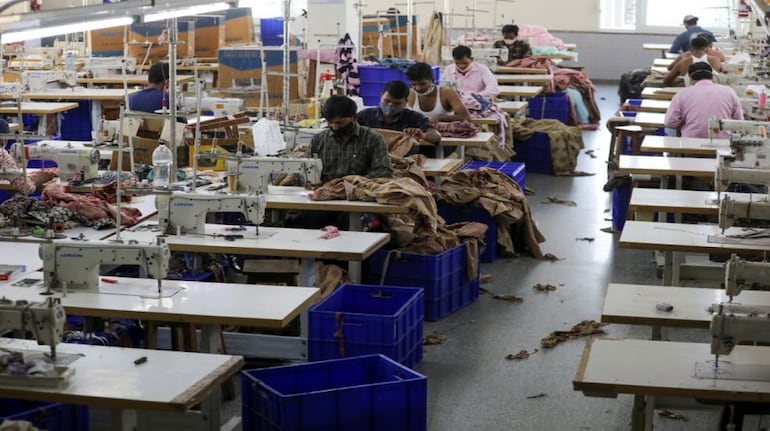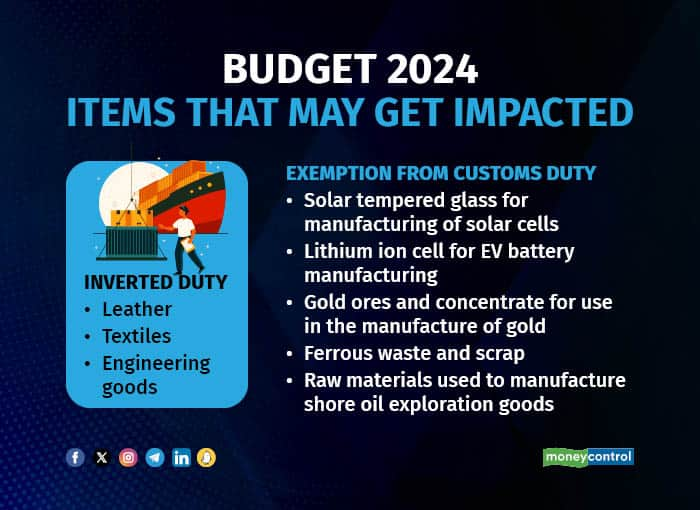



The commerce and industry ministry has in a submission to the finance ministry outlined steps that it hopes will be taken in the budget on July 23, people aware of the matter said. Industry players hope these include measures relating to customs duty on leather and textiles, a continuation of the exemption on duties on items including solar panels and lithium ion cells, etc.
“It is expected that the government would try and correct instances of inverted duty structure in the budget. Some of the items in the engineering, leather and textile industries have an inverted duty structure,” Kartik Solanki, a partner with tax consultancy firm BDO India, told Moneycontrol.

An inverted duty structure is when the import duty on the finished product is lower than on raw materials and intermediate goods, which discourages domestic manufacturing. This is particularly true of manufacturers that are heavily dependent on imported raw materials. The government has been emphasising on sourcing inputs domestically rather than imports.
“It is expected that reforms for the inverted duty structure will be undertaken in the upcoming budget especially due to the demands raised by the textile industry,” SR Patnaik, partner, Cyril Amarchand Mangaldas, told Moneycontrol.
The government is actively working to resolve issues caused by the inverted duty structure, which distorts trade and hampers manufacturing competitiveness, said Rajat Mohan, executive director at tax consultancy Moore Singhi.
Custom duty exemptionsSome of the products on which the customs duty exemption expired on March 31 include solar tempered glass used to manufacture solar cells, gold ores and concentrate used in the jewellery trade, and lithium-ion cells for use in manufacturing of electric vehicle batteries, apart from ferrous waste and scrap, raw material to make offshore oil exploration goods, etc. For all of these items, the customs duty exemption was extended till September 30, 2024. If it is not extended through a notification, the customs duty kicks in from October 1.
“The government, on a case-to-case basis, could further extend the exemptions granted to these products. Unless India is able to start manufacturing lithium-ion batteries for cellular mobile phones and EVs, the customs duty exemption could continue on these items. In case the exemption is not granted, we could witness a bump in the manufacturing costs of the resultant products, which would ultimately pinch the final consumers,” Sanjay Chhabria, director at consulting and accounting services firm Nexdigm, told Moneycontrol.

The government may also consider a phased withdrawal to give industries time to adjust. “In case the exemptions are not extended, domestic manufacturers may find it harder to compete with imported goods. Certain sectors might face disruptions if key inputs become more expensive to procure,” Patnaik said.
In such a case, the profit margins for affected companies could shrink, potentially leading to financial strain, and consumers may experience price hikes for goods affected by the expiry of exemptions, Mohan said.
Discover the latest Business News, Sensex, and Nifty updates. Obtain Personal Finance insights, tax queries, and expert opinions on Moneycontrol or download the Moneycontrol App to stay updated!
Find the best of Al News in one place, specially curated for you every weekend.
Stay on top of the latest tech trends and biggest startup news.